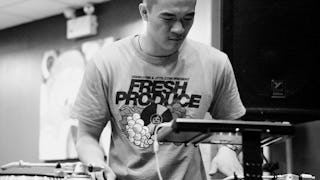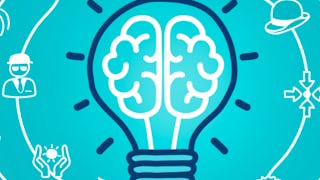Welcome to "Creativity: In Business and Other Disciplines," a transformative course that will unlock your creative potential and empower you to cultivate innovative solutions. Through engaging lessons and insights from renowned experts, this course will equip you with the tools and knowledge to approach challenges from a creative perspective, whether in business, art, science, architecture, or marketing.
In the first module, you will delve into the foundations of creativity, exploring diverse strategies visionary creatives employ. Esteemed guest speakers, including Thom Collins, Michael Platt, and Anjan Chatterjee, will inspire you with their examples and unique approaches. You will discover twelve distinct perspectives on creative problem-solving, from challenging mental models and following dreams to leveraging networks and embracing radical ideas. By experimenting with these approaches, you will learn to generate and evaluate new ideas while persistently pursuing them. As the course progresses, you will be exposed to examples from 60 creatives spanning various disciplines, gaining a comprehensive understanding of creativity and its applications. Lessons will explore the significance of generating innovative ideas, evaluating options, and developing growth strategies. Consumer behavior, cultural influences, and business trends will be examined alongside the transformative potential of AI and machine learning in enhancing creativity. The course also delves into art, architecture, and cultural experiences, where you will hear from exceptional artists and professionals who have pushed the boundaries of creativity. Insights shared by individuals such as Dale Chihuly, Derek Gillman, and Refik Anadol will provide a deeper understanding of creativity in art and the impact of new technologies. Lessons on architecture will highlight the importance of design thinking, interdisciplinary collaboration, and integrating neuroscience and biometrics to create transformative spaces. Creativity in science, innovation, and problem-solving will also be explored, with accomplished individuals sharing their insights. You will learn from laser surgeon Dr. Eric Bernstein, Laureates recognized by the Franklin Institute, and space explorers Dr. Story Musgrave and Dr. Scott Parazynski. Their experiences will showcase the importance of curiosity, collaboration, flexibility, and thinking outside the box in driving progress and achieving success. The course will conclude with lessons on creative gaming, advertising, and marketing strategies. Industry leaders such as Kevin Werbach and Effie Award winners will provide valuable insights into the power of creativity in game design, successful advertising campaigns, and marketing strategies that engage audiences and drive results. By the end of this course, you will have developed a creative mindset and gained practical tools to approach challenges in various disciplines. You will be equipped to generate innovative ideas, evaluate options, and apply creative strategies to succeed. Through hands-on experimentation and reflection, you can design and implement your experiments, applying the approaches and methodologies discussed throughout the course. Join us on this enriching journey to unlock your creativity and harness its transformative potential in business and other disciplines. Prepare to be inspired, challenged, and empowered as you embark on this creative exploration.
















